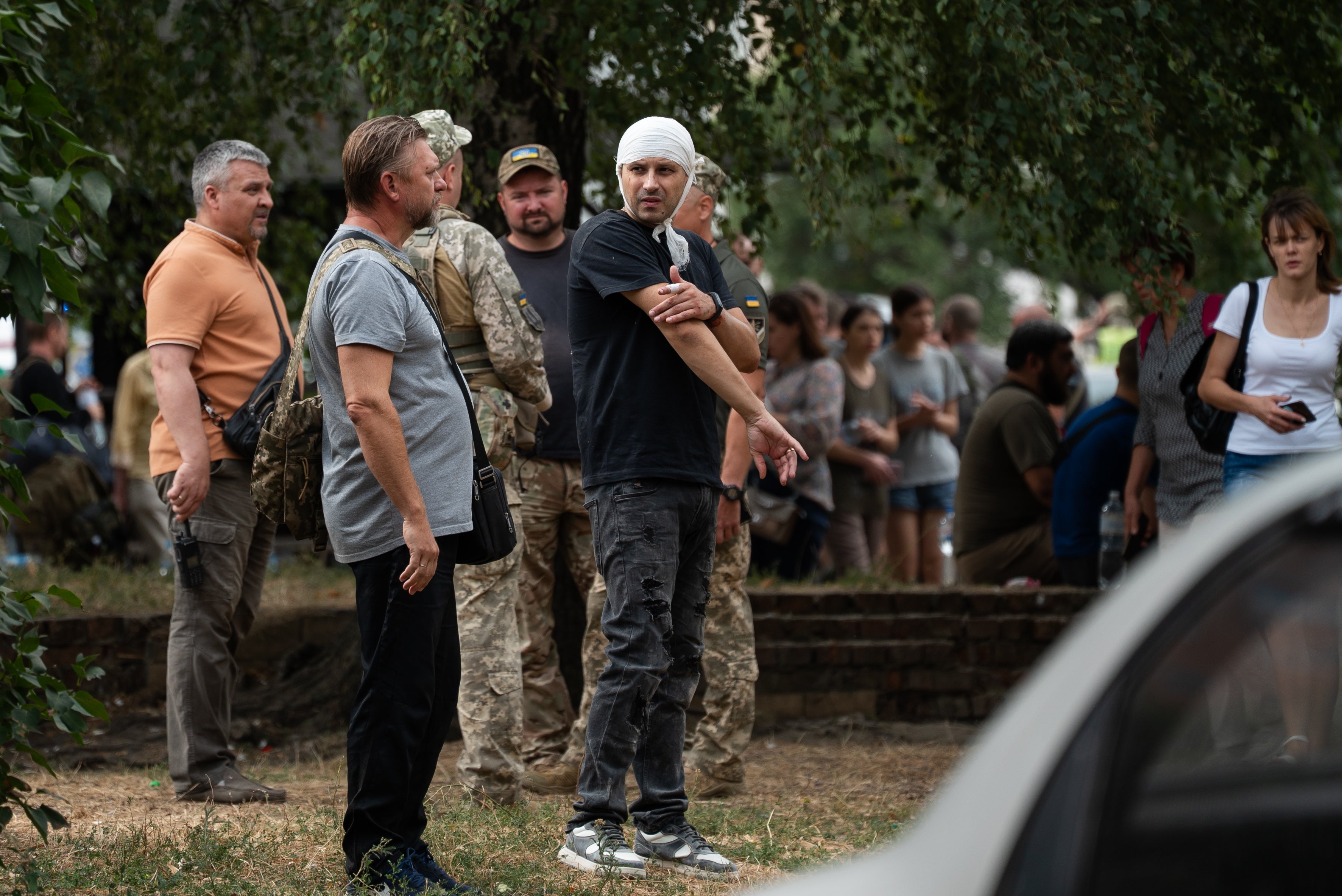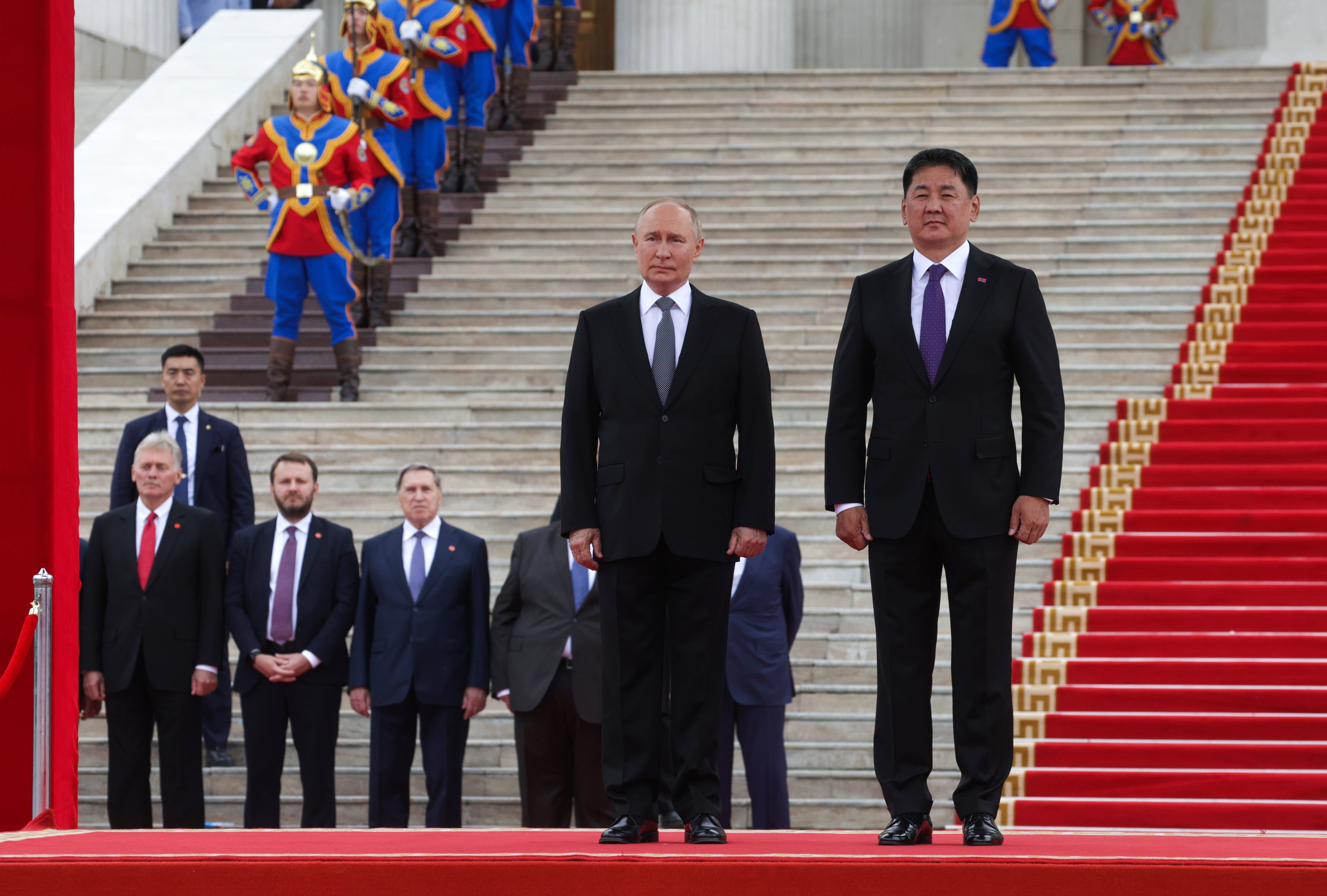Russian strike kills at least 51 in Poltava, Ukraine, in one of deadliest attacks of war
‘Russian scum will pay for this,’ vows Volodymyr Zelensky, as rescuers pick through rubble to find survivors

Two ballistic missiles hit an educational facility and nearby hospital in Ukraine on Tuesday, killing at least 51 people and leaving many others trapped under rubble in one of the deadliest strikes of Vladimir Putin’s war.
More than 200 people were injured in the attack, which partially destroyed the Military Institute of Communications in the central Ukraine city of Poltava, causing several storeys to collapse, while the shockwaves smashed windows and damaged the exteriors of nearby high-rise buildings.
“Russian scum will pay for this strike,” the country’s president Volodymyr Zelensky wrote on Telegram. “We continue to urge everyone in the world who has the power to stop this terror: Ukraine needs air defence systems and missiles now, not sitting in storage.” First lady Olena Zelenska called it a “stunning tragedy for all of Ukraine”.
Ukraine’s defence ministry condemned the “barbaric” attack, saying the time interval between air raid sirens sounding and the missiles hitting had been so short that many victims were caught up in the attack as they headed to bomb shelters.
It added that 25 people were rescued from the building, 11 of whom were pulled from under the rubble, though efforts were reportedly delayed in the immediate aftermath of the strike by constant air raid alerts.
As rescuers sought to save those still buried, regional governor Philip Pronin urged residents to donate blood to help aid survivors and vowed that Russia “must answer for all crimes against humanity”.
Ukraine’s land forces later confirmed that service personnel were killed inside the military institute. An investigation was underway to establish whether enough was done to protect the personnel, a statement said.
Some Ukrainian lawmakers and military personnel questioned why such a large group was congregated in the area, given Russia’s history of targeting crowded facilities.
“This isn’t the first time Russia has targeted crowded facilities,” wrote a former Ukrainian officer who runs the analytical group Frontelligence Insight. “It seems many generals still haven’t learned some basic lessons, even in the third year of the war.”
Pro-war Russian military bloggers, meanwhile, some with millions of followers, celebrated the attack as a military success. They claimed the casualties were as high as 700, without providing evidence, and referred to the victims as soldiers.
The attack came as Mongolia failed to arrest Mr Putin when the Russian president visited the country on Tuesday, despite it being a member of the International Criminal Court’s (ICC) Rome Statute.

Mr Putin is facing an international arrest warrant over alleged war crimes in Ukraine, meaning Mongolia is legally obliged to detain the Russian president and transport him to The Hague, Netherlands, where the ICC is headquartered.
But he received a red carpet welcome upon arrival. In the main square in Ulaanbaatar, the capital, the Russian leader was treated to an honour guard dressed in vivid red and blue uniforms styled on those of the personal guard of 13th-century ruler Genghis Khan, the founder of the Mongol empire.
A throng of people watched from behind temporary barriers as Mr Putin and Mongolian president Ukhnaagiin Khurelsukh walked up the red-carpeted steps of the Government Palace and bowed toward a statue of Khan before entering the building for their meetings.
A small group of protesters who tried to unfurl a Ukrainian flag before the ceremony were taken away by police. Five others who gathered a few blocks west of the square held up an anti-Putin banner and Ukrainian flag but disbanded after hearing about the arrests.
The trip is Putin’s first to a member nation of the ICC since it issued the warrant in March 2023. The Russian leader had been due to visit South Africa, another signatory of the ICC, last August but after significant international and domestic protests inside the African nation, he eventually cancelled his trip.
Ahead of Mr Putin’s visit, Ukraine urged Mongolia to hand him over to the court in The Hague, while the European Union expressed concern that Mongolia might not execute the warrant.
The warrant put the Mongolian government in a difficult position. After decades under communism with close ties to the Soviet Union, it transitioned to democracy in the 1990s and built relations with the United States, Japan and other new partners.
However, the landlocked country remains economically dependent on its two much larger and more powerful neighbours, Russia and China.
The ICC has accused Putin of being responsible for the abductions of children from Ukraine. Member countries are required to detain suspects if a warrant has been issued but Mongolia needs to maintain its ties with Russia and the court lacks a mechanism to enforce its warrants.
Join our commenting forum
Join thought-provoking conversations, follow other Independent readers and see their replies
Comments
Bookmark popover
Removed from bookmarks